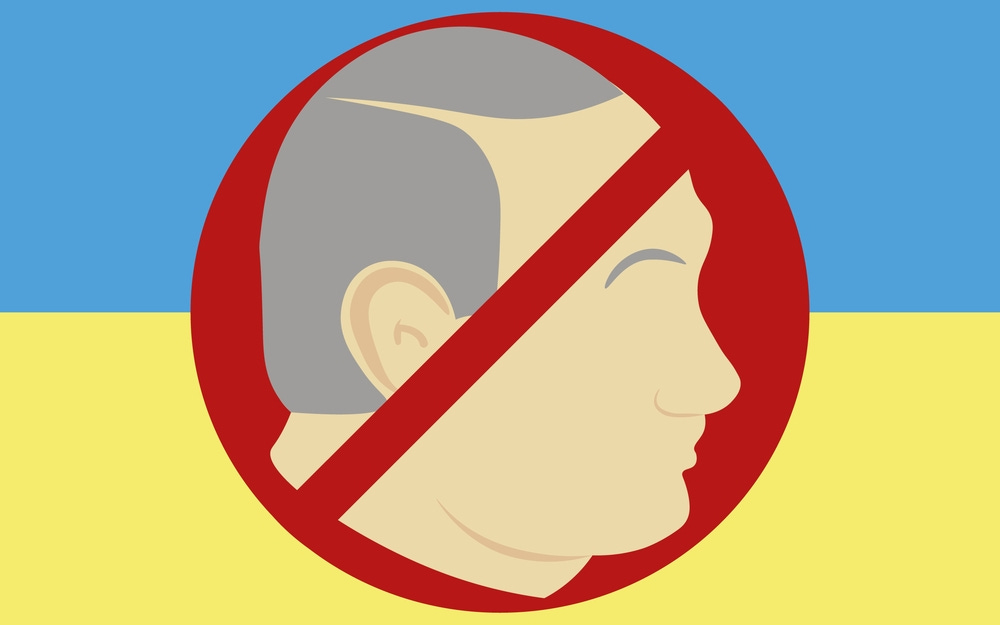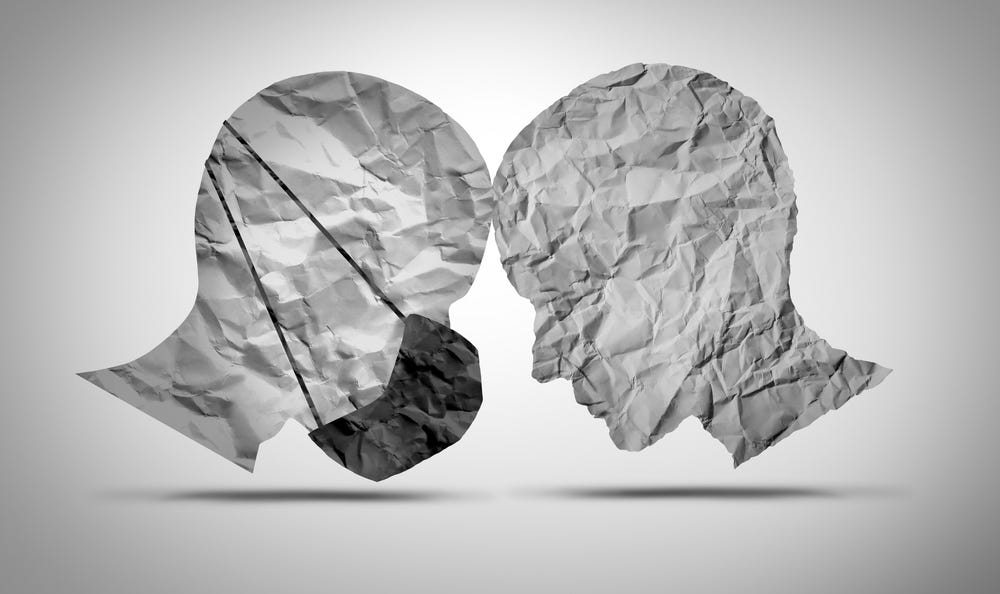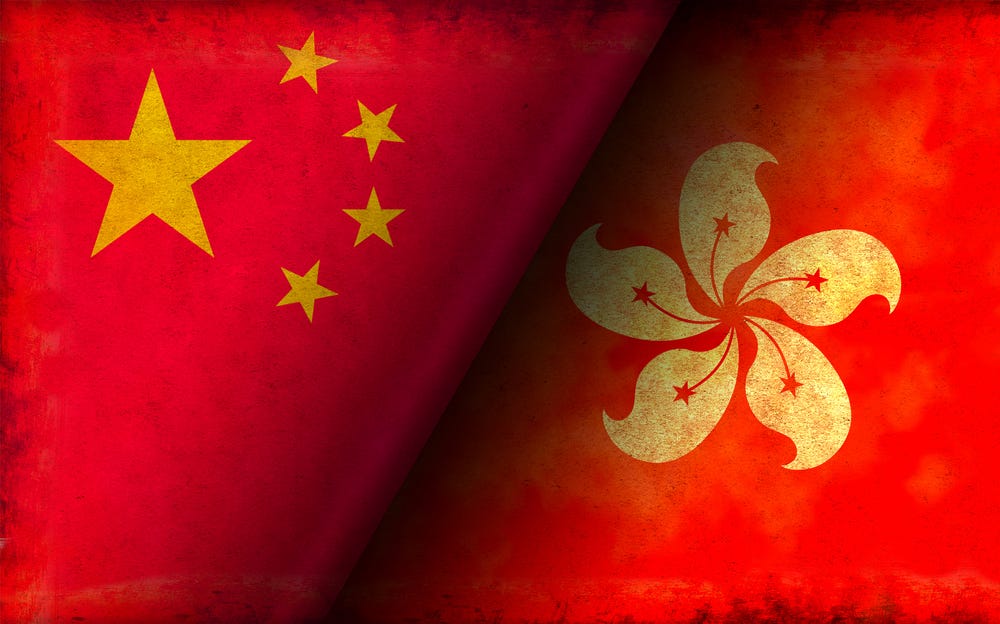E-Pluribus | March 15, 2022
When 'cancelling' is justified, viral tribalism, and a personal look at Hong Kong.
A round up of the latest and best writing and musings on the rise of illiberalism in the public discourse:
Robert Tracinski: Should We Be Canceling Russia?
The meaning of “cancelling” began to be distorted almost as soon as it came into being. When Pluribus debuted, I proposed defining cancel culture as “generally characterized by disproportionate, punitive, coordinated, personal destruction and discrediting for a real or perceived offense with no offer of redemption.” However, in his Discourse Magazine call to “cancel Russia,” Robert Tracinski uses a looser version of the term to describe justifiable punitive measures and accountability for Vladimir Putin and his henchman and enablers. While acknowledging some have gone too far with guilt-by-association sanctions, Tracinski says we must not yield to those who would minimize the horror of the military action in Ukraine by complaining that Russia is being “cancelled.”
Most of the debates we have about freedom of speech are not really about government censorship. They are about the culture of free speech, an ethos that favors open discussion and welcomes a variety of viewpoints. This debate is about the decisions made by private individuals and institutions about whom they will continue to broadcast or support. Yet everyone has to draw a line somewhere, cutting off certain ideas: conspiracy theories that are too absurd, evasions that are too dishonest, lies that are too vicious to be entertained.
The Russian invasion of Ukraine is a reminder of why we have to draw these lines. Ideas have consequences, and the consequences of some ideas are so clearly destructive, on such a large scale, that decent people have to reject them and refuse to cooperate in spreading them, just out of self-preservation.
[ . . . ]
Not every evil is the equivalent of Nazi Germany. We tend to resort to that example precisely because it is so extreme that it helps clarify our answers, even though most cases we encounter are not as clear-cut. Yet there’s not that much difference between Hitler’s aggression in Europe and Vladimir Putin’s war of unprovoked aggression, which has been characterized by the wanton slaughter of civilians, including artillery bombardment of residential neighborhoods and the murder of fleeing families. So it is entirely reasonable to cut off his cronies and apologists.
For example, one of the complaints about anti-Russian “cancel culture” specifically defends Russian conductor Valery Gergiev. But Gergiev is not just some random Russian. He is a regime insider who has long used his connection with Putin to promote his career.
[ . . . ]
Similarly, we should not sympathize with the employees of Russian state-run media outlets such as RT, who are now finding themselves out of a job and deprived of an audience. Some years ago, there were ambitious young people, often on the left, who signed up to work for RT so they could cover Occupy Wall Street. But they long ago discovered that their real job was just to pump out pro-Putin propaganda. Those who remained knew what they were signing up for, yet they have been complaining about being labeled as “state-owned media” and, in a spectacular failure of self-awareness, quoting George Orwell to protest cable and satellite companies dropping RT from their lineup. You don’t get to quote Orwell in your defense if you work for the Ministry of Truth.
Read the whole thing.
Mark Alan Smith: The Virus of Covid Tribalism
At Arc Digital, Mark Alan Smith examines the depth and intensity of political tribalism that the pandemic has helped to expose. The desire to “win” has driven both sides to counterproductive and unhealthy behavior that in some cases amounts to no more than cutting off one’s nose to spite one’s face. The consequences of such tribalism are serious under normal circumstances, but in the context of COVID-19, quarantine, shutdowns, masks and vaccines, the results can be long-lasting and even deadly.
Take the example of vaccine resistance, which was evenly spread across the political spectrum before Covid. The left-wing version, articulated most prominently by Robert F. Kennedy, Jr., embodied anti-corporate, environmental, and “natural is best” values. The right-wing version also carried an anti-corporate streak, plus distrust of experts and authorities. Within the public at large, almost identical percentages of Democrats (58 percent) and Republicans (54 percent) received a flu shot during the 2019-20 season.
Since then, vaccines emerged as a central front of the culture war. It was not preordained, however, that the political left would shift heavily in the pro-vaccine direction. Both Joe Biden and Kamala Harris warned of safety risks if the vaccine trials were completed early under Donald Trump. Had the results been available before the election, allowing Trump to take credit, subsequent patterns of vaccine trust would have been different.
[ . . . ]
The discussion around masks also polarized, with subtlety becoming the first casualty. Before the pandemic, nobody could know how political orientations toward masks would develop. Previous research through the gold standard of evidence for medical interventions—Randomized Controlled Trials (RCTs)—had found masking against the flu to be ineffective. At the same time, most people’s intuitions suggested that facial barriers against airborne pathogens should yield at least some benefit.
[ . . . ]
[G]overnment agencies did not fund any RCTs on masking children. Epidemiologists such as Michael Osterholm were forced to triangulate from other forms of evidence. It was well-known since spring 2020 that children are much less likely than adults to contract and transmit Covid. Furthermore, most children during the pandemic have worn ineffective cloth masks. Masking young children, Osterholm concluded, yields little-to-no benefit for their personal protection or community spread.
For articulating this case, Osterholm was routinely slandered as anti-mask. In actuality, he promoted masking for adults and older children as one component of a multi-pronged response to Covid. Seeking to move beyond the hygiene theater of cloth masks, he urged people to wear high-quality N95s and KN95s instead. Osterholm thereby tried to offer something a culture war cannot handle: nuance.
Read it all here.
Haley Byrd Wilt: Defiant Hope in a Dying City
Hong Kong is often held up as a symbol of democratic resistance and/or democratic diminution in the face of authoritarian creep. In her review of a new book by a lifelong resident of Hong Kong, The Impossible City, Haley Byrd Wilt of The Dispatch says that author Karen Cheung allows readers to see Cheung’s hometown on a more personal level rather than as just an icon. While Cheung has great fear for Hong Kong’s future, she has not given up on her remarkable city.
Throughout, there are jarring reminders of the brutal totalitarianism China has imposed on the city. Cheung will describe a place she loves, or an area near an old apartment, before mentioning it was where her friends clashed with police, or where she hosted journalists who needed to recover after being tear-gassed. She’ll write about people she spent time with or reported on for news outlets before mentioning they have fled to other countries or are currently in prison. The last 30 pages of the book are a direct, grim look at life during the 2019 and 2020 protests, and a reminder of just how violent the Hong Kong police were.
Cheung recounts how Hong Kongers—a people whose calendars revolve around protests and vigils—knew the drill when the time came to mobilize in historic numbers. She tells us about how they made sure they had protective gear and water bottles for rinsing out burning eyes and raw throats after being choked by tear gas. She remembers stepping over a pool of blood on the way home from a protest. She reflects on the fear, shared by others who participated in the protests, that there will never be enough she can do to contribute to the movement.
While never shying away from the heartbreak and the consequences of China’s crackdown on Hong Kong, Cheung’s book doesn’t set out to analyze geopolitics. She isn’t here to explain the pro-democracy protests and Beijing’s oppression to a Western audience. She places the stories of Hong Kong’s people front and center, not as background characters in a story about U.S.-China competition. A former journalist, Cheung is familiar with the shortcomings of Western media’s approach to Hong Kong: “Publications continue to act like the only time Hong Kongers deserve their own stories is when it’s a narrative about our death,” she observes.
The Impossible City breaks that mold, even though the motivation underpinning it—to remember—is decidedly morbid. Near the end, Cheung shares her greatest fear: that life will carry on and Hong Kong will appear unchanged from the outside, but there won’t be anyone left to remember the city that once existed. That the only ones remaining will be “those who believe this is the best version of Hong Kong there could ever be.”
Read it all.
Legends of Dissent: Frederick Douglass, Part 2
Here’s the second installment in our new graphic vignette feature, Legends of Dissent: Frederick Douglass at the Tremont. As always, we welcome your feedback.
Around Twitter
A good reality check from Anthony Bradley and David French on “engaging” with your detractors:
Via Christopher Rufo, excerpts from a story of 5th grade “antiracism” training in Texas gone off the rails (click for the whole thread):
And finally, Tucker Carlson’s and Tulsi Gabbard’s views on the war in Ukraine drive a lot of people up the wall, but Keith Olbermann, as he is wont to do, takes it to a whole ‘nother level:








